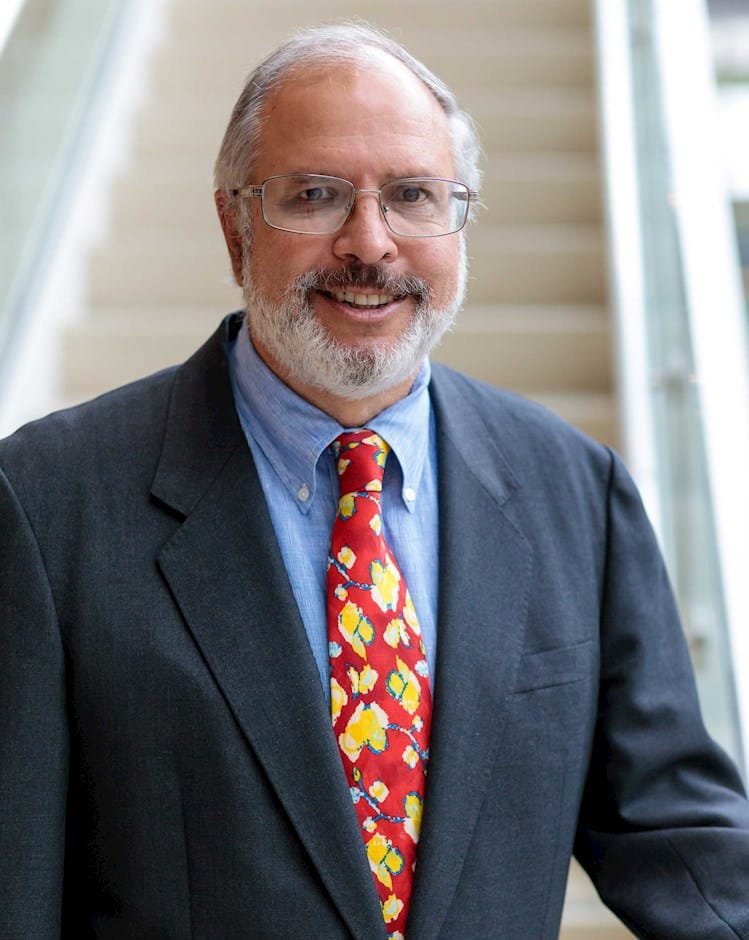US Federal Reserve Bank Independence is Vital say Ken Griffin and Anil Kashyap
President Trump risks weakening the Federal Reserve Bank’s credibility billionaire Ken Griffin and professor Anil Kashyap say in a Wall Street Journal article
(Photo: Anil K. Kashyap, courtesy University of Chicago.)
September 11, 2025
Few on Wall Street - or among company chief executives - “are willing to publicly lob any criticism at President Trump”, who singles out people or companies for retribution over alleged slights, a report in the Wall Street Journal stated this week. “Hedge-fund manager Ken Griffin is an exception.”
This was after Griffin and Anil Kashyap co-wrote an opinion piece for the Journal pointing out that President Trump’s statements and actions risk undermining the independence of the US Federal Reserve Bank. Trump’s public pressure on “the central bank to adopt a more permissive stance toward inflation…raise inflation expectations, increase market risk premiums, and weaken investor confidence in U.S. institutions.” Once a central bank loses credibility, Griffin and Kashyap state, “borrowing costs rise, and restoring stability becomes far more difficult.”
Griffin, 56-years-old, is founder and Chief Executive of Citadel, a multi-strategy hedge fund manager, and Citadel Securities, a global market maker. His net worth is $50 billion, Forbes estimates.
While Griffin did not donate to Trump’s re-election campaign in 2024 he voted for Trump. Griffin is a major contributor to the Republican Party and its candidates, donating $108 million in 2024, the fifth largest donor in the election cycle. He has donated more than $2 billion to medical, education and other philanthropies.
The Republican Party looks to major donors like Griffin to fund its campaign to try and retain its majority in the House and Senate, in next year’s midterm elections. “Trump has reason to be diplomatic in his approach with Griffin,” notes the Wall Street Journal. Will Trump or his supporters, especially in academia, seek retribution against Kashyap, Griffin’s co-author?
Anil K. Kashyap, 64-years-old, is a Professor of Economics at the Booth Business School, University of Chicago. He teaches a course in Corporation Finance; and has supervised more than twenty PhD students. His research interests are banking; business cycles; corporate finance; and monetary policy.
Kashyap has fourteen other affiliations, including as a consultant to the Federal Reserve Bank of Chicago, since 1991; advisor to the International Monetary Fund, since 2011; and a Research Fellow, at the London School of Economics, since 2017.
Kashyap has advised numerous government and international organizations, including the Office of the Japanese Prime Minister, the European Central Bank, the US Congressional Budget Office, and the Federal Reserve Bank of New York.
Kashyap is the author, co-author or editor of six books, including What Stopped Japan's Economic Growth? Prescriptions for the Revival, 2013; also, numerous articles in research journals and opinion articles in news sites and blogs.
In 1991, Kashyap joined the University of Chicago as an Assistant Professor of Business Economics. Earlier, he was an economist at the Board of Governors of the Federal Reserve System, from 1988 to 1991.
Kashyap earned a PhD from the Massachusetts Institute of Technology in 1989. His thesis analyzed pricing data from mail order retailers and also included research, with Takeo Hoshi and David Scharfstein, about the unique institutional features of the Japanese economy. While doing his PhD, Kashyap worked as research assistant for the Board of Governors of the Federal Reserve System, from 1982 to 1984. He earned a BA from the University of California at Davis, 1982.
Kashyap was born in Fremont, California and graduated from Mission San Jose High School in 1978. A first generation Indian American, he is single and has two adult children.
Back in 2009, Kashyap and Frederic S. Mishkin, a fellow Booth School professor, pointed out the need for an independent Federal Reserve Bank in an opinion article for the Wall Street Journal. They wrote that the economic history of the US and other countries repeatedly shows that, “When central banks are subject to political pressure, authorities often pursue excessively expansionary monetary policy in order to lower unemployment in the short run. This produces higher inflation and higher interest rates without lowering unemployment in the long term.”
Will the US Federal Reserve bow to Trump’s political pressure and, if so, will history repeat?


